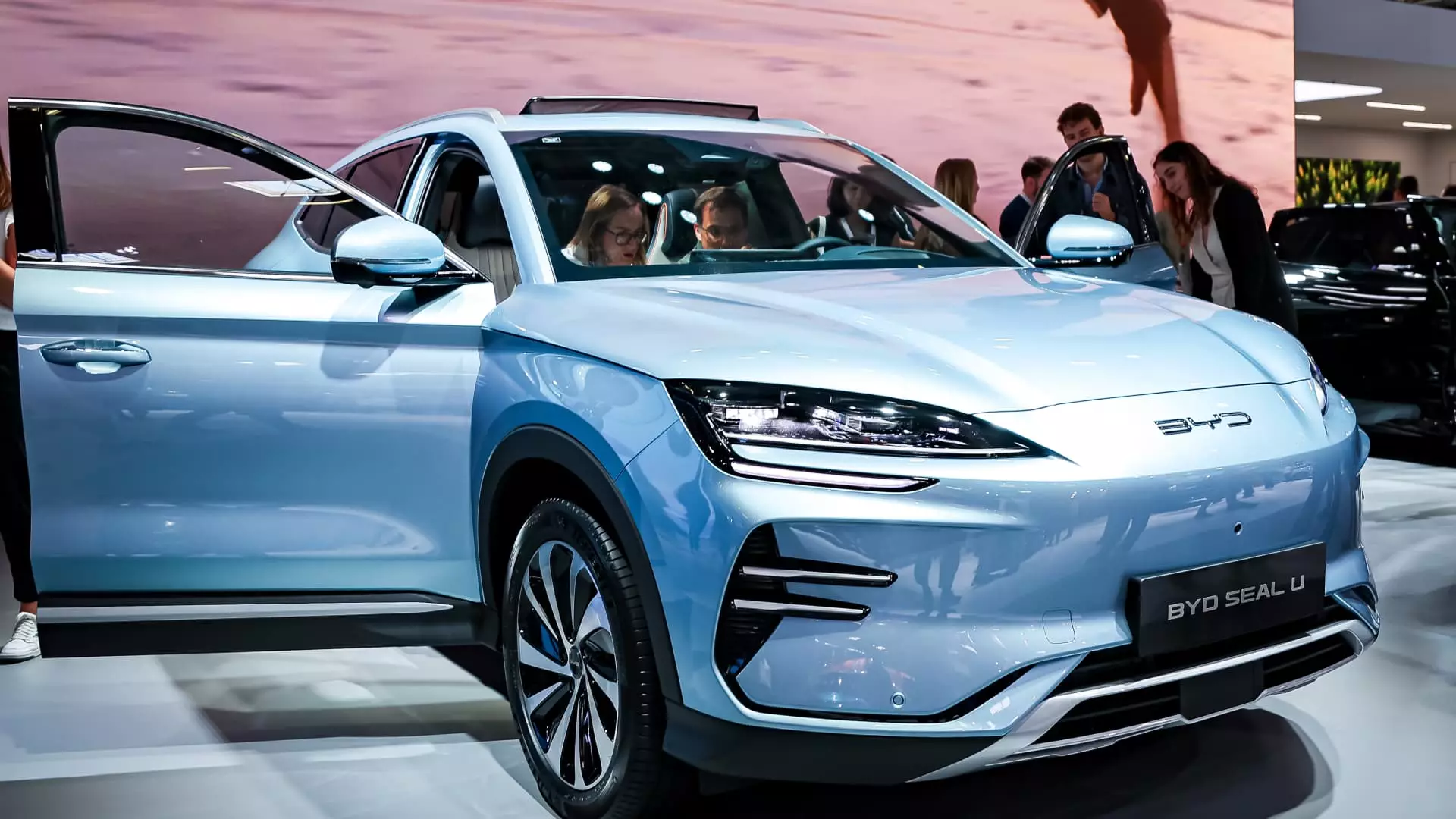The Chinese electric vehicle manufacturer BYD is on the trajectory to surpass Tesla in battery electric vehicle (BEV) sales this year, according to a recent report from Counterpoint Research. The report highlights a significant increase in BYD’s market share in the BEV segment, underlining the dynamic nature of the global EV market. In the second quarter, BYD experienced a substantial 21% year-on-year growth in battery EV sales, totaling 426,039 units. In comparison, Tesla’s second-quarter deliveries saw a 4.8% decline to 443,956 vehicles. This surge in sales positions BYD as a formidable competitor to Tesla in the electric vehicle industry.
BYD’s total production in the previous year exceeded 3 million units, comprising battery-only powered cars and hybrids. This volume surpassed Tesla’s production output of 1.84 million cars for the second consecutive year. Notably, BYD manufactured 1.6 million battery-only passenger cars and 1.4 million hybrids, overshadowing Tesla in BEV production. Despite losing the top EV vendor position to Tesla in the first quarter, BYD’s growth trajectory remains robust, spearheading the BEV market in China.
Counterpoint Research emphasizes China’s dominant presence in the BEV market, with BYD leading the charge. The report forecasts that China will maintain over 50% market share of global BEV sales until 2027, underscoring the nation’s stronghold in the electric vehicle sector. Additionally, Chinese BEV sales are projected to surpass the combined sales of North America and Europe by 2030, showcasing China’s pivotal role in shaping the future of electric mobility.
The European Union recently announced additional tariffs on Chinese EV firms to address concerns of unfair competition in the market. BYD and other Chinese automakers will face increased duties, with BYD subject to a 17.4% tariff, Geely to incur a 20% duty, and SAIC to pay the highest rate of 38.1%. These tariffs aim to level the playing field for European EV manufacturers facing stiff competition from lower-priced Chinese imports. Counterpoint Research’s associate director, Liz Lee, notes that the tariffs may redirect Chinese automakers towards emerging markets in regions like the Middle East, Africa, Latin America, Southeast Asia, Australia, and New Zealand.
Despite challenges posed by EU tariffs, the electric vehicle market is poised for significant growth, driven by initiatives aimed at enhancing cost-efficiency and affordability of EVs and EV batteries. As countries worldwide transition towards sustainable transportation solutions, the demand for electric vehicles is expected to rise, offering a promising outlook for manufacturers like BYD. By focusing on innovation, sustainability, and market expansion, BYD is well-positioned to redefine the electric vehicle landscape and solidify its position in the global market.

